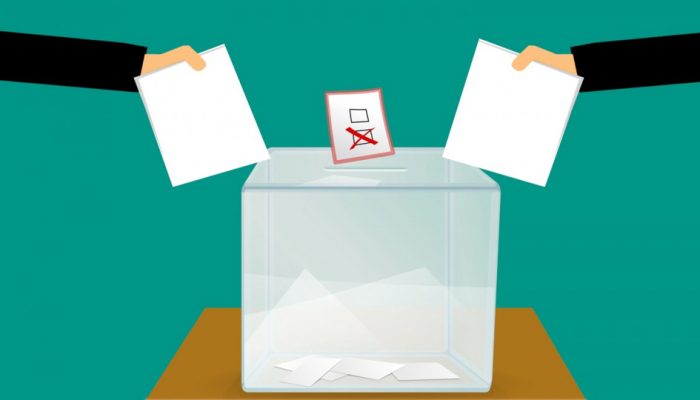 Sports Betting License Rules Relaxed by Ohio RegulatorsRead Article
Sports Betting License Rules Relaxed by Ohio RegulatorsRead Article Lisa SpencerJune 01, 2024
Lisa SpencerJune 01, 2024
It’s a big moment in Colorado right now, as the general public has voted in favor of legalizing sports betting in the state. The vote – which election officials finished tallying up on Wednesday – was very narrow, with a 51%-49% margin showing that, while now legal, public opinion on sports betting is still mixed.
According to officials, more than 1.3 million residents of Colorado came out to vote on Proposition DD – a bipartisan ballot measure that was crafted by legislators from both sides to look at legalizing sports betting. In the bill, it stated that taxes raised as a result of sports betting would be used to help fund a state water conservation plan.
Ever since the US Supreme Court ruled last year that states could offer sports betting legally, many states have rushed to pass legislation. They saw the potential taxation benefits from running a legalized sports betting industry – taxation that could be used by the state in question to fund important issues..
According to a report by the Associated Press, seven states that had fully legalized sports betting have done well, pulling in more than $74 million over the past fiscal year from taxation alone.
According to Proposition DD, starting from May 2020 casinos can begin to offer in-person and online wagering. The sports that can be bet on include professional, collegiate, motor and Olympic sports. According to the proposal, there will be a 10% flat tax on all net sports betting proceeds, and experts predict that this will be worth about $11 million per year for the state. This figure is expected to rise over the coming years too, as sports betting grows in popularity and more casinos begin to implement state-of-the-art betting facilities.
The main reason for the close vote was the language used, according to Alec Garnett, the Democratic House Leader. Garnett, who co-sponsored Proposition DD, stated:
TABOR requires us to start with, ‘Shall we raise taxes’. There’s a baseline of voters in Colorado – it doesn’t matter if you’re taxing casinos or puppies – they’re going to be against taxes, period.
What’s more, tax is always going to be a voter turn-off, even if the taxes are going to be paid by gambling companies, and not the customers. The fact that Proposition DD proposed taxing something currently illegal might have also confused voters, although Colorado voters had to weigh in on the same type of thing when marijuana was legalized in the state.
Next, the state will begin to draft up more specific regulations surrounding sports betting. There is no current timeframe for these regulations to be drafted, however if they want betting to begin in May 2020, they’ll need to act quickly.
What’s more, casinos in Colorado will now start speaking with some of the more established names in the sports betting industry, such as FanDuel, DraftKings and William Hill, as they look for a partner to run the sports betting aspect of their business.
 Sports Betting License Rules Relaxed by Ohio RegulatorsRead Article
Sports Betting License Rules Relaxed by Ohio RegulatorsRead Article Lisa SpencerJune 01, 2024
Lisa SpencerJune 01, 2024 Betting on Women’s Sports Sees Surge in United StatesRead Article
Betting on Women’s Sports Sees Surge in United StatesRead Article Blake RobertsMay 29, 2024
Blake RobertsMay 29, 2024 April Sports Betting Handle in NY Near $2 BillionRead Article
April Sports Betting Handle in NY Near $2 BillionRead Article Amelia WalkerMay 27, 2024
Amelia WalkerMay 27, 2024